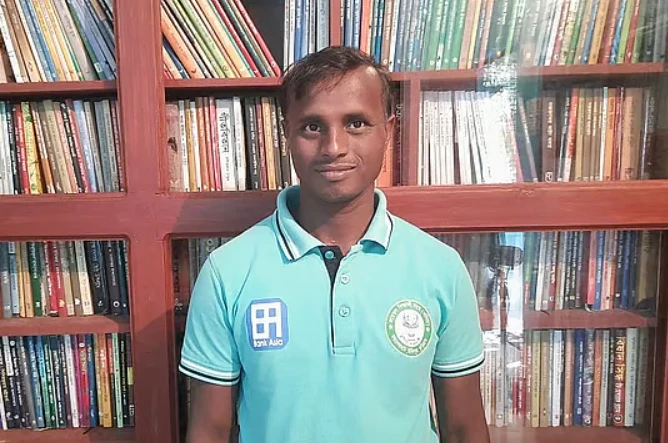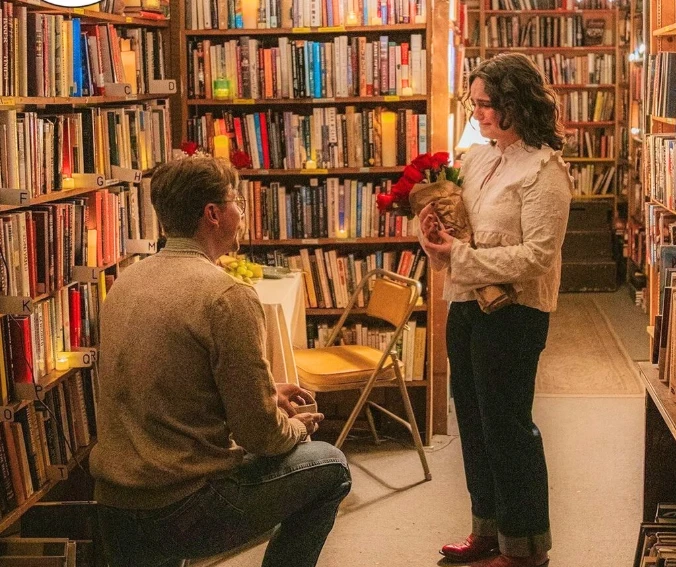When books changed his life, a day laborer in Bangladesh made sure others could read too. Discover how he built a library that changed his entire community.
If we grew up with a library nearby or with a library area at our school, we might be tempted to take this for granted. But in fact, we’d be one of the lucky ones. Many communities around the world do not have access to library resources. Maybe your community is one of them.
This is why a day labourer in Bangladesh decided to make a change. He built a library of his own in his village – a facility that he and his fellow villagers could enjoy together. This is his story.
Joynal Abedin and the Beginnings of an Idea
Joynal Abedin was born near the Kurigram area of Bangladesh, but his actual childhood was spent some twenty kilometres away, in the small village of Satbhita. The young Joynal would work in the fields with his father.
As he grew older, the village economy grew more difficult. Along with other young people from his village, Joynal would head out in search of work, and his journeys took him to the town of Gazipur, where workers were needed to run the brick kilns.

By 2011, Joynal was working long shifts in the kiln, starting around two or three in the morning and finishing at midday. After his shifts, Joynal would peruse the local amenities in Gazipur, including the roadside bookshops. Buying two of the books for sale and reading them in his spare time, Joynal began to develop an idea.
A Developing Love of Reading
When he was younger, Joynal hadn’t been the biggest fan of reading. He associated it with schoolwork rather than something to do for fun. Joynal had been educated up to the Fifth Standard, which meant he left school at around ten years old, but he’d still had plenty of experience with textbooks, homework, and all of the other things that get on the nerves of young students.
But the books he bought in Gazipur were different. Suddenly, he got what all the fuss was about. He started buying more books whenever he had the chance, and whenever he’d finished the ones he was reading at that moment.
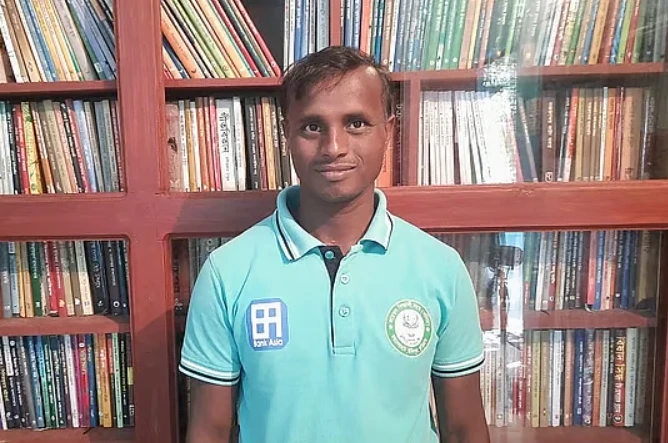
While this was a joyous experience for Joynal, it was also a melancholy one. He thought about the people back at home in his village, and about how they didn’t have the same opportunities he was having. So he began a new project.
Whenever he went back home to Satbhita, he’d take with him a few books to share with villagers. And whenever he came back to Gazipur, he’d visit the Bangladesh Agricultural Research Institute, the Tongi Railway Station, and the Tongi College, in search of second-hand volumes to buy.
Overcoming the Doubters
Soon, it became clear that Joynal needed to formalize his project. Rather than just transporting books back and forwards from Gazipur to the village, he’d need to create a library – somewhere that villagers could come and engage with these books.
But not everyone was on board with his project from day one. There were doubters, and even Joynal sometimes second-guessed himself.
“I’m a day labourer; what would people say if they hear me talking about making a library?” he remembered thinking, his confidence eroded by those who didn’t have faith in him. But he remained resolute. “No matter what the people say, I will build a library.”
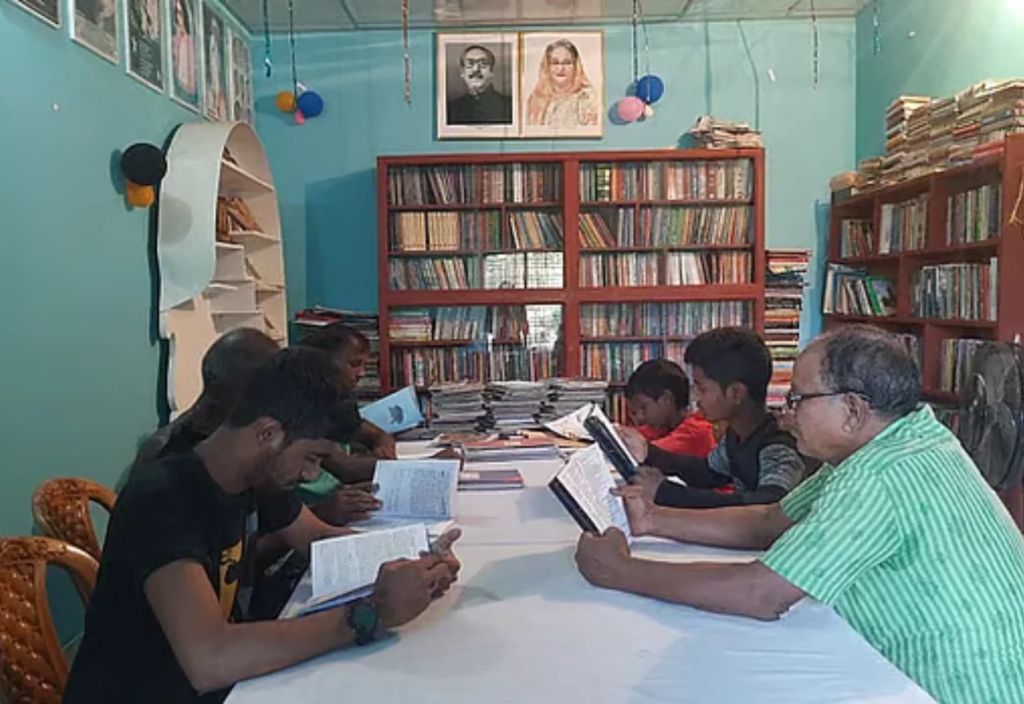
So he did. In 2011, the Satbhita Public Library was open for visitors and borrowers. It was a huge success, but tragedy was just around the corner. During the 2013 election, there was an outbreak of political violence in Satbhita. The violence tragically claimed a life, and institutions like the library were closed down.
But Joynal knew the library must return. He went back to Gazipur and started building a new collection of books. Then, in 2015, he purchased land in the village, ready for a new library. Again, some people doubted him.
“Many used to harass me. I felt bad, but I didn’t let that stop me; instead, it strengthened my intent.” By 2019, he’d paid off the price of the land, and he was installing equipment and furnishings in the building. Finally, on February 28th, 2021, the new public library was opened.
The Satbhita Gronthonir
On the road from Kurigram to Satbhita, there is a building made from corrugated tin sheets. Decked out in bright blue, the building bears the name “Satbhita Gronthonir.” This is Joynal’s library, and the product of his hard work and dedication over many years and setbacks.
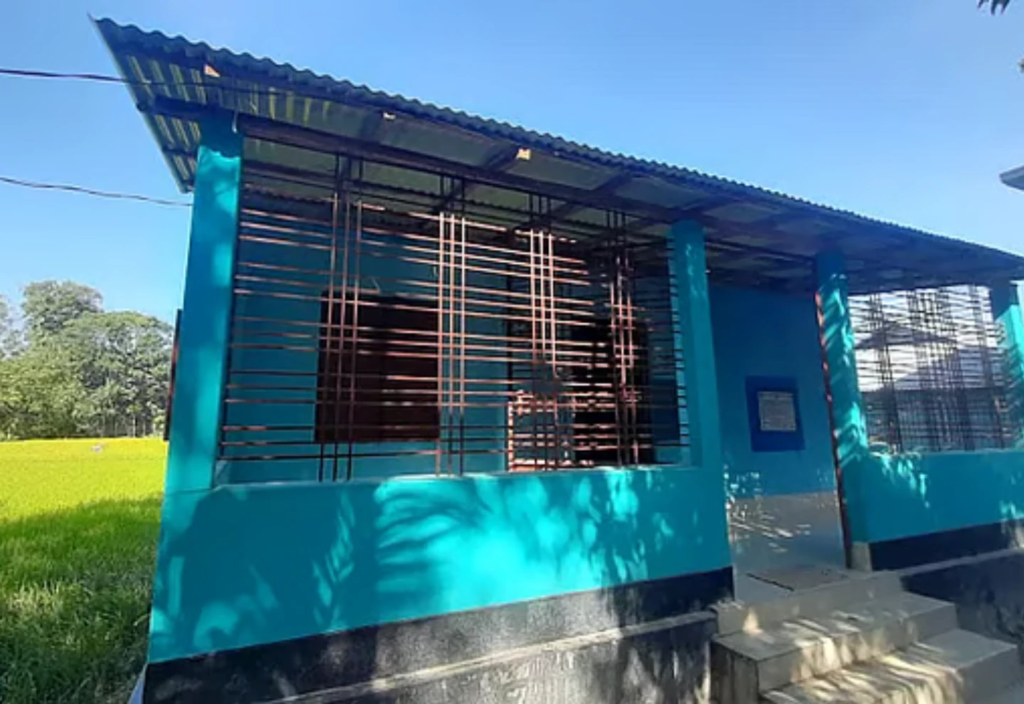
Inside, there are plenty of facilities for study, or simply for sitting down and enjoying a good book. Portraits line the walls – the likes of Rabindranath Tagore and Syed Shamsul Haq. And of course, there are books; 3,500 of them in total.
Joynal’s tenacity has transformed this rural Bangladeshi community. Even when the odds were stacked against him, he refused to give up.
Join our community of 1.5M readers
Like this story? You'll love our free weekly magazine.





